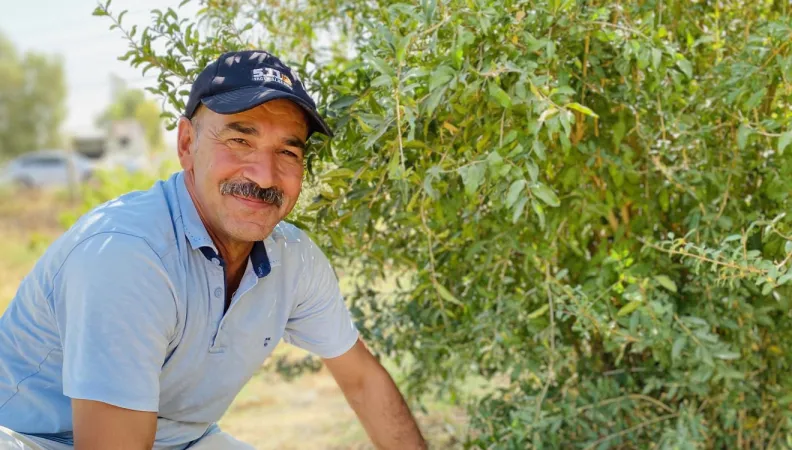Share the page
PERMA 2 : Promoting Economic Revival for Microbusiness and Agriculture
Project


-
Project start date
-
Status
Ongoing
-
Project duration
-
3 ans
-
AFD financing amount
-
€ 10 000 000
-
Country and region
-
Location
-
Governorates of Ninewa and Salah-al-Din
-
Type of financing
-
Beneficiaries
-
Mercy Corps Europe in association with Triangle Generation Humanitaire (TGH) and Public Aid Organization (PAO)
The project supports the development of rural microfinance and small enterprises as a sustainable way to revive the agricultural economy in Ninewa and Salah-al-Din, with complementary support to innovation in high potential value chains and the promotion of community groups of diverse origins to support these common socioeconomic goals.
Context
In Iraq, agriculture is the main source of income for one third of the population but contributes only 5% to the GDP due to natural constraints, lack of infrastructures and decades of poor public policies. In the western part of the country, including the Ninewa and Salah-al-Din governorates, the incursion of Daesh has further damaged the existing rural economy and rural population livelihoods. Meanwhile, financial inclusion in Iraq is very low and even more so for rural populations and women. The revival of agriculture and rural MSMEs is essential to diversify the economy beyond the oil sector and to create private employment with high socioeconomic impact. Unlocking financial access is critical in the process.
Description
The project is an extension of a first project (PERMA1). It aims at strengthening three micro finance institutions (MFIs) capacity to reach smallholder farmers and MSMEs; and provide them with affordable and tailored financial services to start, re-start and grow agricultural activities. Through an “Agricultural Investment Fund”, the project will allow the extension of loans to smallholder farmers, women and youth up to a maximum of USD 5,000. The MFIs will receive support to improve their loan and risk management strategies, and to expand their activity. The project will also support the expansion of Saving and Internal Lending Communities.
In parallel, the project will strengthen market linkages for smallholder farmers to enable them to increase their productivity and profitability, targeting key value chains such as wheat, barley, vegetable and livestock, and their access to quality inputs, processing and preservation technologies and animal health services, as well as the sustainable rehabilitation and operation of irrigated systems.
Finally, the project will support the establishment and activity of community groups representative of the diversity of gender, ethnicity and religion with shared socio-economic goals to encourage cooperation and sustainable interactions.
Impacts
The project will continue supporting Al-Hamdaniya district of Ninewa and extend to three new districts of Salah al-Din governorate (Baiji, Samarra and Tikrit) with the aim of reaching over 10,000 vulnerable households. Selection of beneficiaries will be conducted through an inclusive process in order to ensure transparence, acceptance and ownership of the project and to contribute to its sustainability.


